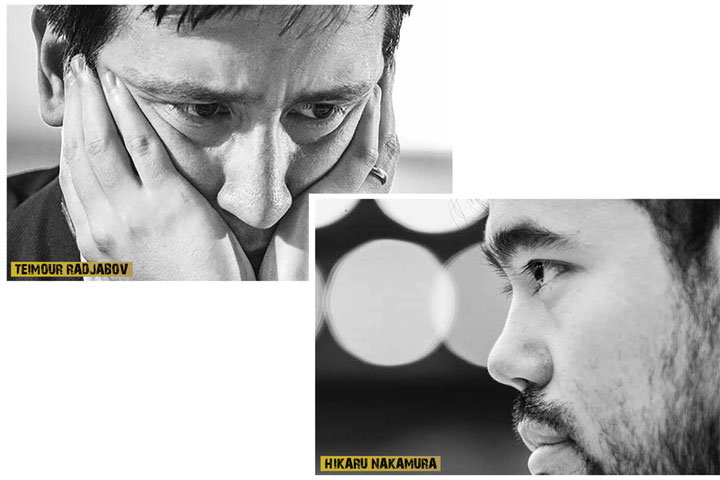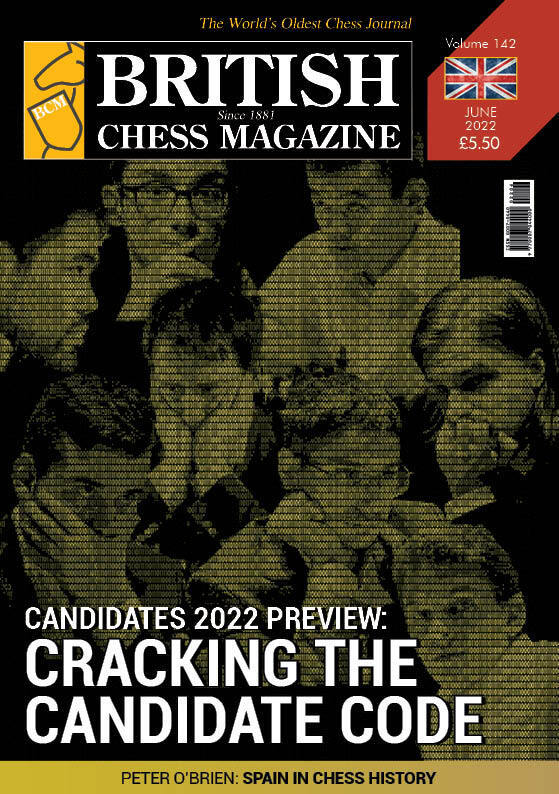


The unlikely winner of the Grand Prix series is also an unlikely winner of the Candidate Tournament. Hikaru Nakamura (34) showed incredible resilience, similar to what he regularly shows in the blitz and rapid events he constantly plays online, and this was the main chess-related reason for his success.
The second reason was psychological. Nakamura no longer feels the pressure to perform, achieve and earn money. He found his calling in the online world of chess streaming and blitz chess, where he thrives. Already a millionaire and financially secure for life, Nakamura can play just for the sake of playing well. His natural ability coupled with his lack of nervousness meant that Nakamura was unbeatable in Berlin.
This psychological stability will be his main strength in Madrid. He will supplement it with good opening preparation. His staple defences of QGD and Berlin with Black will be refreshed with new ideas, possibly adding a new opening against 1.d4, like the QGA that he played in the second leg in Berlin. With White his serve-and-volley approach (of hitting his opponent hard in [semi-] forced variations with new ideas) can be dangerous and will likely remain his preferred way in his White games.
All of the above makes Nakamura a formidable opponent, but it seems to me that he doesn’t really have the ambition or will to win. The above-mentioned psychological stability also means that he is not forced to ‘bite’, making him inferior to more hungry and driven opponents.
What will a win in Madrid mean to Nakamura? An upcoming match with Carlsen, a player he famously suffers against in classical chess (14 losses and only one win) that will require months of tough preparation and removal from his usual streaming and online blitz-playing activities that he likes so much. Maybe it’s possible to look at it from another aspect, to stream all his preparation process and the match to his viewers, but I still find this difficult to believe.
I really liked Nakamura’s play in the Grand Prix and I am looking forward to seeing him play again serious chess in Madrid, but I doubt he has good chances of winning.
A player with the least chance of winning is Teimour Radjabov (35).
He shouldn’t even have played in Madrid – he got there because of his decision not to play in Yekaterinburg, correctly fearing the pandemic. For that decision he was awarded by FIDE with a wild card. A debatable decision, but here we are.
What happened to Radjabov was a very disappointing transformation. The child prodigy who played wild and exciting chess full of King’s Indians and Sveshnikovs, the 15-year-old who beat Kasparov with Black in Linares 2004, it seemed the only way was up. And it was, until 2013.
That fateful year Radjabov played his first Candidates Tournament. Entering as one of the favourites, with a rating of almost 2800, he crashed and burned badly. With a finish in last place on a disastrous -6 and with a whopping 32 points of rating lost, this event scarred Radjabov for life. The adventurous player started transforming into a drawing machine. The KIDs and Sveshnikovs gave way to the QGD and the Berlin. Radjabov shut down.
He slowly disappeared from the radar too. He became insignificant when it came to elite chess.
And then, in 2019, he burst back into the scene by winning the World Cup and qualifying for the Candidates in 2020. In that tournament, somehow his innate dynamism blended perfectly with his new-found solidity. That combination made Radjabov impossible to beat. However...
In that World Cup the second game he won in the final against Ding Liren, played on 2nd of October 2019, is his last (!!) win in classical chess up to date. His last event (in all time controls) was the European Team Championship in November 2021 where he drew all his games.
The propensity to play for a draw with both colours has become a trademark of his play. In an extremely tough tournament like the Candidates striving for solidity is even expected, thus in a way justifying his approach. It is easier for Radjabov to repeat Giri’s record of 14 draws from the Moscow Candidates in 2016 than to win.
The best-case scenario for Radjabov is a repeat of the perfect blend of solidity and dynamism that happened to him in 2019. Like Rapport, he is scheduled to play on the eve of the Candidates in Norway. After months with a lack of serious practice, this outing before the Candidates should do him good. But whether he manages to calibrate the right balance that helped him in Khanty-Mansiysk three years ago remains to be seen.
The clock is ticking down. Soon enough Madrid will be a happy place for one player.

The above series appears in the June 2022 issue of The British Chess Magazine, the world's oldest chess publication. It is reproduced with kind permission.
BCM covers the international and British chess scene. In a blend of current event coverage and thought-provoking analysis of the chess world’s most topical issues, BCM gives readers what they need to understand and enjoy the Royal Game and its wider context in society. BCM’s interviews with top players and key chess world influencers and participants (actors, businessmen, artists, politicians, top chess world administrators), detailed games analysis and historical articles provide in-depth coverage of chess events and wider chess themes.
Published monthly, each issue of The British Chess Magazine contains 64 pages packed with exclusive articles and annotations. You can buy a subscription (£55 per year, £4.58 per issue) or download a sample copy free.
| Advertising |